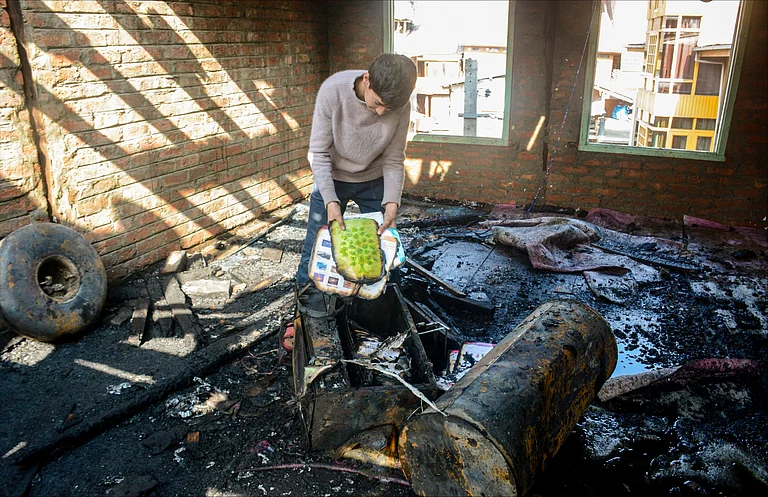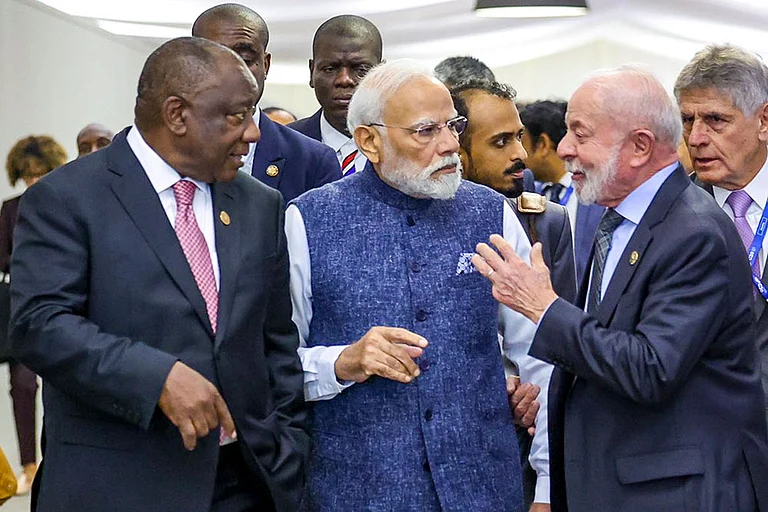Delegates from around the world gathered in Busan, South Korea, on Monday for a decisive round of negotiations aimed at addressing the escalating global plastic pollution crisis. This marks the fifth time countries have convened to work on a legally binding treaty to combat plastic pollution. Alongside national representatives, experts from the plastics industry, scientists, and environmental advocates are participating to shape the outcome.
The United Nations has described plastic pollution as a crisis that is "choking the planet," affecting lakes, rivers, oceans, and even human bodies. UN Environment Programme Executive Director Inger Andersen urged swift action, saying, "Don't kick the can, or the plastic bottle, down the road. This is an issue about intergenerational justice for those who will come after us, living with all this garbage. We can solve this, and we must get it done in Busan."
The negotiations, scheduled to continue through Saturday, aim to bridge significant differences in goals and approaches revealed in previous sessions. Norway and Rwanda, leading a coalition of 66 countries and the European Union, are pushing for measures to control plastic design, production, consumption, and disposal. Micronesia, an island nation grappling with plastic waste washing ashore from around the world, has been instrumental in advocating for stricter measures to curb "unsustainable" plastic production through an initiative called the Bridge to Busan.
Dennis Clare, Micronesia’s legal advisor and plastics negotiator, emphasized the need for upstream solutions, stating, "We think it's the heart of the treaty, to go upstream and get to the problem at its source. There's a tagline: 'You can't recycle your way out of this problem.'”
Tensions Over Production Caps and Industry Influence
However, this perspective faces strong opposition from plastic-producing nations like Saudi Arabia, which resists any limits on plastic production. With fossil fuels as the primary raw material for plastics, Saudi Arabia leads the global export of polypropylene, a widely used plastic type, accounting for 17% of exports in 2022. The United States, China, and Germany dominate global plastic trade, further complicating consensus on production caps.
The plastics industry advocates for a focus on redesign, recycling, and reuse, a concept often referred to as "circularity." Chris Jahn, representing the International Council of Chemical Associations, suggested prioritizing efforts to prevent plastic waste from entering the environment rather than limiting production. "To continue to progress and grow as a global economy, there are going to be more plastics. So we should strive to keep those plastics in the economy and out of the environment," Jahn explained.
The United States has also drawn scrutiny for its evolving position. Initially supporting individual national plans, perceived as favoring industry, the U.S. recently expressed openness to global targets for reducing plastic production. Critics argue, however, that the U.S. lacks ambition. Sarah Martik, Executive Director of the Center for Coalfield Justice, accused the U.S. of hindering progress. "The United States is standing on the sidelines rather than leading, putting their thumb on the scale throughout the entirety of the negotiations," she said.
Democratic Senator Jeff Merkley of Oregon added, "It's a mistake for the United States to settle for the lowest common denominator proposals just to get some kind of agreement."
Luis Vayas Valdivieso, the committee chair from Ecuador, has proposed compromise language for sections of the treaty to advance discussions. Meanwhile, the Organisation for Economic Co-operation and Development (OECD) warns that without policy changes, global plastic production and use could surge to 736 million tonnes by 2040, a 70% increase from 2020 levels.
Recent research published in Science indicates that significant policy measures could nearly eliminate plastic pollution. Key steps include requiring new products to contain at least 40% post-consumer recycled plastic, capping new plastic production at 2020 levels, investing heavily in waste management infrastructure, and implementing small fees on plastic packaging.
Douglas McCauley, a professor at UC Santa Barbara and UC Berkeley, co-led the study and highlighted the treaty's importance. "The treaty is the only way to solve plastic pollution at this scale," he said.
Margaret Spring, Chief Conservation and Science Officer for the Monterey Bay Aquarium, underscored the urgency of treating plastic pollution as a global crisis. Representing the International Science Council at the negotiations, she noted, "Plastic pollution used to be seen as largely a waste problem. Now it is widely viewed as an existential crisis that must be addressed. I've never seen people's understanding of this issue move as fast, given how complex the topic is. It gives me hope that we can actually start moving the dial."
Despite growing awareness of the plastic pollution crisis, achieving a consensus in Busan remains a formidable challenge. Countries with vested interests in plastic production are hesitant to adopt measures that could affect their economies or industries, while environmental advocates warn that time is running out. The devastating impact of plastic waste on ecosystems, wildlife, and human health makes this issue impossible to ignore.
As the negotiations progress, the hope is that nations will find common ground to tackle this global emergency. By implementing ambitious policies and committing to shared goals, the treaty has the potential to drive meaningful change. If successful, it could signal a turning point in humanity's fight against environmental degradation.
The world is watching Busan closely, as the decisions made this week could shape the future of plastic use and pollution for generations to come. It’s a chance for leaders to prove that collective action can overcome even the most complex global challenges.


























